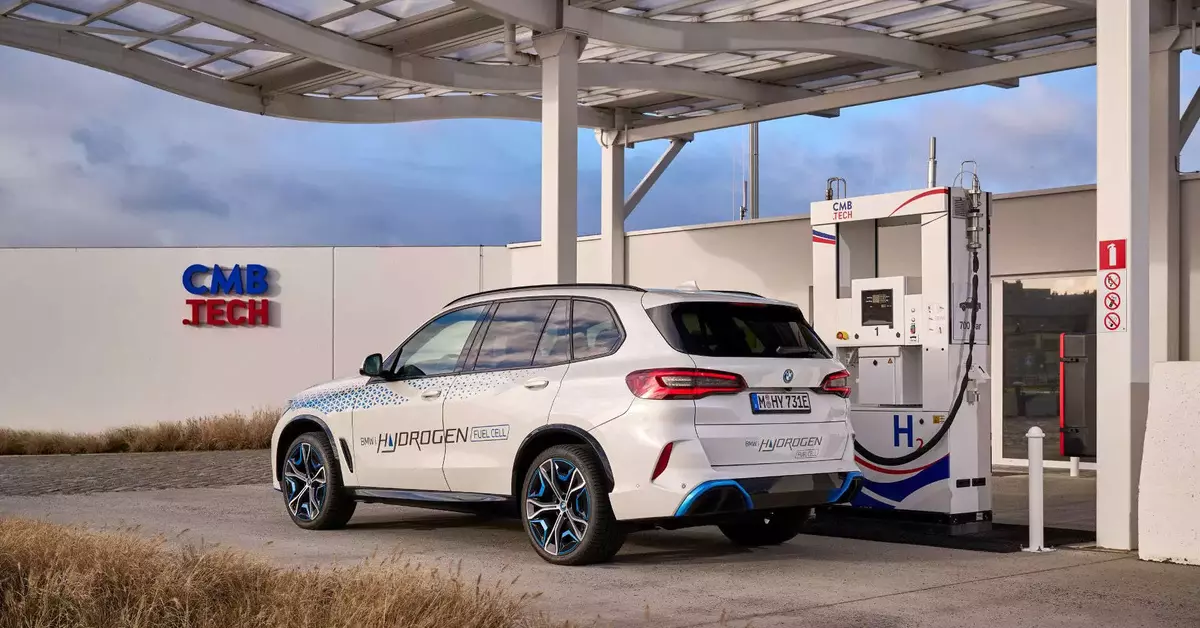Car companies are looking for more eco-friendly alternatives to replace regular gasoline engines. In recent years, we’ve seen a lot of electric cars on the road, which use batteries for power. But there’s another option that might be even better: hydrogen-powered vehicles. These cars have some unique benefits compared to electric ones. Companies have been working hard to improve this technology, and governments are encouraging it too. Even though electric cars are a step in the right direction to reduce pollution, they still have some problems to solve. Hydrogen-powered cars could change the future of transportation, not just for cars, but for all kinds of vehicles.

A Peek into Hydrogen-Powered Cars
Hydrogen fuel cell technology has been around since the 19th century, but it only made its way into modern cars in 1966 when General Motors introduced the “Electrovan.” This technology has come a long way and is changing how we think about eco-friendly transportation.
Hydrogen-electric cars combine the best of gasoline and electric vehicles. They use compressed hydrogen gas as fuel instead of gasoline. Instead of burning gasoline, they use hydrogen to make electricity, which charges the car’s battery. This battery is similar to those in electric cars, with two parts called the anode and cathode. When hydrogen goes into the fuel cell, it turns into electricity. After that, the hydrogen molecules combine to make water, so the only thing that comes out of the car is water vapor. This makes these cars almost emissions-free, which is why they’re getting a lot of attention.
But there are some challenges. Getting pure hydrogen is not easy and can be expensive. Traditional methods use rare metals like platinum, ruthenium, and iridium to separate hydrogen from water, which costs a lot. But scientists in South Korea have come up with a new way using a special catalyst, which makes hydrogen production cheaper and more sustainable. This could also eliminate the need to transport hydrogen because refueling stations could make it on-site using solar energy.
Hydrogen-electric cars are an important step toward cleaner and greener transportation. They have the potential to reduce our environmental impact and help fight climate change.
Countries and Companies Leading the Way in Hydrogen Cars
Many countries and companies are working to make hydrogen-electric cars a reality. They see the potential in this technology to change the way we power vehicles and more. Here are some key players in this movement:
- In the United States, former President George Bush started the Hydrogen Fuel Initiative in 2003 to fund research in fuel cell technology. Now, the U.S. is the second-largest producer of hydrogen, with President Joe Biden committing $8 billion to green hydrogen in an infrastructure bill.
- The United Kingdom has set ambitious goals to be a leader in hydrogen power by 2030. They have a plan to use hydrogen in their energy landscape.
- Japan is also making strides in hydrogen technology, with plans to have a network of hydrogen refueling stations by 2030. They have big automakers like Toyota and Honda leading the way in fuel cell cars.
- Companies like Renault are exploring hydrogen technology, even in Formula 1 racing. They see the benefits of hydrogen fuel cells, like their high energy density and lightweight nature.
- Nikola Motor Company is working on hydrogen-powered trucks to address the weight issue in electric trucks. They aim to produce many of these trucks, making them more powerful and with a longer range.
The hydrogen-electric revolution is changing the future of transportation and sustainability. With the efforts of countries, automakers, and companies, hydrogen technology is making transportation cleaner and more eco-conscious.
ALSO READ: Solar-Powered Cars – The Eco-Friendly Revolution for Cost-Efficient and Sustainable Transportation
Embracing Hydrogen-Powered Cars: Current and Upcoming Models
The car industry is moving toward hydrogen-electric vehicles, and there are now more options for consumers. Here’s a look at some of the current and upcoming hydrogen-powered cars:
| Car Name | Starting Price | Range (miles) | Horsepower |
| Honda Clarity | $58,490 | 366 | 174 hp |
| Toyota Mirai | $49,500 | 402 | 182 hp |
| Audi H-Tron Quattro | Not available yet | 372.8 | Unknown |
| Hyperion XP-1 | $2-3 million | 1,016 | 2,000 hp |
| Hyundai Nexo | $60,135 | 354 | 161 hp |
Each of these cars has its unique features and suits different preferences and needs. Whether you want a long-range car like the Toyota Mirai or a high-performance vehicle like the Hyperion XP-1, there are options for environmentally conscious consumers and those who want the latest in automotive tech.
As hydrogen technology keeps advancing, more carmakers will likely join the movement, offering even more choices for consumers. The future of clean and sustainable transportation looks bright, with hydrogen-electric vehicles playing a big role in this journey.
Other car manufacturers, such as BMW, Mercedes, and Lexus, also have plans to introduce fuel cell vehicles in the near future. The significant positive impact of these hydrogen-electric vehicles on the environment is undeniable. Technological advancements have been swift over the past decade, and it appears that hydrogen has the potential to eventually replace traditional gasoline-powered vehicles in the coming years, provided that production costs decrease and performance capabilities can match those of Battery Electric Vehicles (BEVs) and Internal Combustion Engine (ICE) models. The Hyperion XP-1 serves as a notable example of the potential power and speed that hydrogen fuel cells can offer. Hydrogen fuel cell technology will continue to evolve over time, aiming to become the future of transportation, serving a wide range of vehicles, from mass-produced cars to high-end hypercars.









